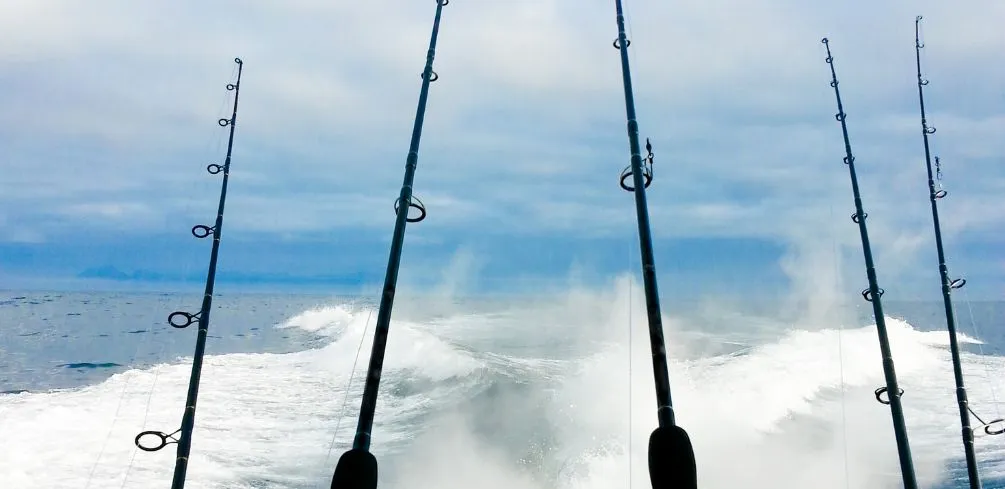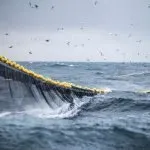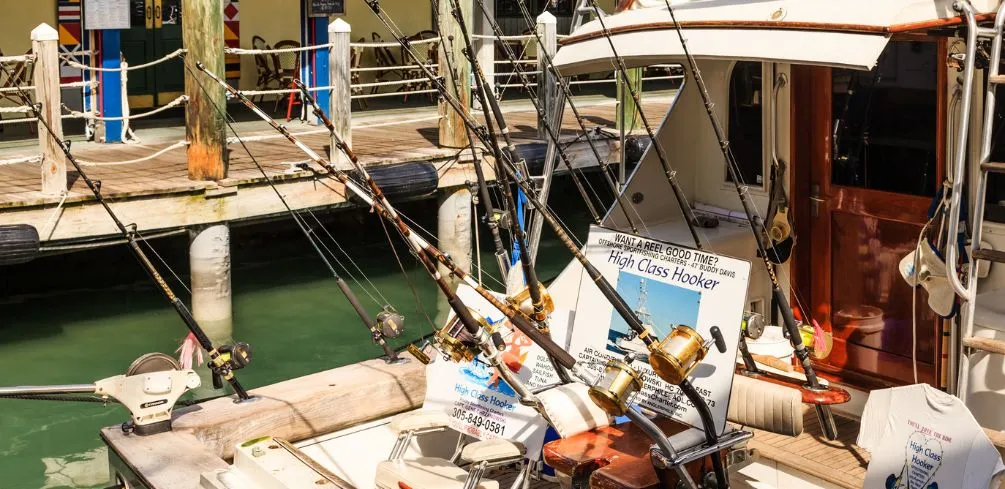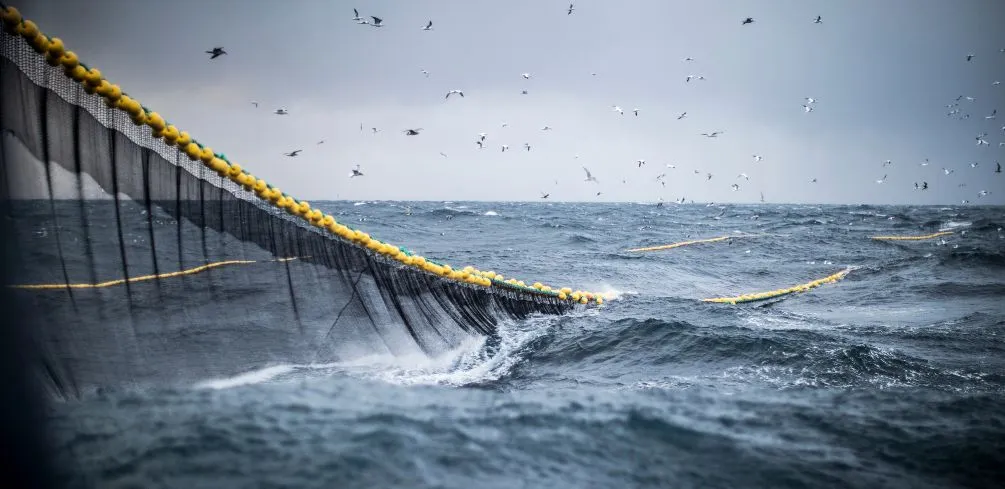The ocean is an incredibly diverse and important ecosystem – it’s home to countless species of aquatic animals, plants, and other organisms. But in recent years, overfishing has had a devastating impact on the health of our oceans. The problem has become so severe that marine life around the world is being pushed to the brink of extinction.
I’m sure you’ve heard about the effects of overfishing on our oceans – but do you really understand how it impacts this vital ecosystem? In this article, I’ll look at the consequences of overfishing and explain why it’s so important that we take action now to protect our precious aquatic environments.
From the loss of biodiversity to an increase in ocean acidification, overfishing has far-reaching impacts on our planet. It’s therefore essential that we all take steps to reduce our reliance on fish as a food source, before it’s too late. Keep reading as I break down exactly what’s at risk if we don’t take action soon!
Definition Of Overfishing
Overfishing is a serious issue that affects ocean life and fishing practices. It’s the depletion of fish populations due to the excessive demand for seafood and other products from the sea.
This happens when too many fish are taken from the ocean, and not enough is left to reproduce naturally, leading to a decrease in species numbers. Fishing practices such as trawling, long-lining, and bottom-trawling can cause overfishing.
These techniques disturb coral reefs, disrupt fish habitats and make it difficult for fish to reproduce. As a result, more and more species become endangered or extinct over time.
The depletion of ocean life also affects humans. Not only does it deplete our food sources, but it also has an economic impact when certain fisheries collapse due to overfishing.
This can lead to job losses in coastal communities that depend on those fisheries for their livelihoods. It can also lead to less income for governments due to lower taxes being paid by fishermen or businesses related to fishing industries.
Overfishing needs to be addressed with sustainable fishing practices if we want our oceans’ ecosystems and resources to remain healthy in the future. More research is needed into ways of managing fisheries so that they don’t become depleted due to overexploitation by people taking too much from them.
We must find ways of preventing this from happening if we want future generations to benefit from our oceans’ wealth of resources.
Effects On Marine Species
Now that we’ve established what overfishing is, let’s discuss the effects of this practice on marine species. As a result of overfishing, many fish species have become endangered or even extinct. This has caused a major disruption to the balance of the ocean’s ecosystem.
The depletion of fish populations due to overfishing has had far-reaching consequences, making it difficult for marine life to survive in their natural habitats. Not only are the fish populations affected, but so are other organisms, such as plankton and coral reefs, which are essential components of the ocean’s food chain.
The impact of overfishing is especially severe when it comes to commercial fishing operations. The use of large industrial vessels with advanced technology allows fishermen to catch more fish than ever before. This leads to an unsustainable rate of depletion in certain fish stocks and can cause irreparable damage to ocean health.
Below are three key points about the effects of overfishing on marine species:
- Endangered or extinct species due to depleting fish populations
- Disruption in the balance of an oceanic ecosystem
- Unsustainable rate of depletion caused by commercial fishing operations
In addition to these impacts on marine life, overfishing also has repercussions for human society; it can lead to economic instability and poverty in coastal communities that depend on fishing as a primary source of income.
Governments must take action to protect threatened populations by implementing sustainable fisheries management policies as well as regulations regarding fishing gear and limits on catches. If no steps are taken now, the long-term consequences could be disastrous for both humans and marine life alike.
Effects On Ocean Ecosystems
Overfishing has created serious consequences for the health of our oceans and their ecosystems. Though some may argue that overfishing is only a minor issue, the reality is that it has caused major damage to marine food chains, oceanic biodiversity, coastal habitats, and even ocean acidification.
At the heart of this issue is the fact that fish populations are being pushed to dangerously low levels. This means that fish species are not able to reproduce at a rate fast enough to sustain their populations.
As a result, other species in the ocean’s food chain become threatened since they rely on these fish as their source of nutrition. In addition to this, coastal habitats are being damaged due to illegal fishing practices such as bottom trawling, which destroys coral systems and seagrass beds.
Finally, ocean acidification is another adverse effect of overfishing which can be attributed to high levels of carbon dioxide being absorbed into the water. This increase in acidity can have detrimental impacts on organisms that have calcium carbonates shells or skeletons, such as corals and shellfish, further impacting marine life and overall oceanic biodiversity.
Clearly, overfishing has caused far-reaching effects on not only our oceans but also their delicate ecosystems and all living organisms within them. It is important, then, for us all to be mindful of how we interact with this precious resource so that future generations may continue to benefit from its beauty and abundance for many years to come.
Human Impact And Solutions
Humans have had a devastating effect on the ocean and its ecosystems due to overfishing. We are depleting species of fish, shrimp, crabs, and other marine life at an alarming rate. Not only does this take away from the beauty of the ocean, but it also affects the balance of the marine food chain and disrupts entire ecosystems.
The most significant human impact comes from commercial fishing operations that employ large fleets of boats with huge nets or lines that can sweep up vast amounts of fish in just one outing. This type of overfishing has caused some species to become endangered or even extinct in certain areas.
To prevent further damage to our oceans, we must start implementing measures to reduce overfishing and promote sustainable fishing practices.
There are several possible solutions for preventing overfishing and restoring marine ecosystems. Governments could provide incentives to fishermen who practice sustainable fishing methods, such as using smaller nets and limited catch sizes.
Marine protected areas could be established where fishing is prohibited or strictly regulated so that fish populations can recover from overexploitation. Additionally, research into more effective ways to monitor and manage fisheries is needed so that effective regulations can be put in place to protect threatened species from extinction.
It’s clear that if we want to keep our oceans healthy, we need to take action now. We all have a part to play in protecting our planet’s precious resources by supporting sustainable fishing practices and advocating for tighter regulation of our fisheries.
Together, we can create a brighter future for our marine ecosystems – one where they thrive instead of suffering from human activity.
Long-Term Consequences
Wow! The impact of overfishing on the ocean and its ecosystem is truly devastating. Not only does it bring about an immediate decline in fish populations, but it can also lead to long-term consequences that will be felt for generations.
From marine biodiversity loss to ocean acidification, habitat destruction, and more, the effects of overfishing are far-reaching and concerning.
First, let’s talk about marine biodiversity loss. As commercial fishing increases, so does the number of non-target species that are caught accidentally by fishers. This is known as bycatch, a major issue for fisheries around the world and a growing concern for conservationists.
Bycatch has a direct effect on marine biodiversity as it depletes valuable species from our oceans, like dolphins, turtles, and sharks. This further threatens the balance of our ocean ecosystems, which could have far-reaching implications in the future.
The acidification of our oceans is another long-term consequence of overfishing. When large amounts of fish are taken out of their habitats, they disrupt the natural carbon cycle between organisms and the environment.
This increased strain on our oceans causes them to absorb more carbon dioxide, which leads to ocean acidification – a process that can take centuries or even millennia to reverse. This may have serious consequences for marine life as well as humans, who depend on healthy oceans for food security and livelihoods.
Habitat destruction is yet another devastating consequence that results from overfishing. When too many fish are removed from their habitats, they cause an imbalance in local ecosystems which can have serious impacts on other species, such as coral reefs and seagrasses – both essential for healthy oceans and important sources of food for people around the world.
Without these vital habitats, coastal communities would suffer greatly from food insecurity, poverty, and other impacts associated with this type of ecosystem collapse.
It’s clear that if we continue to overfish our oceans without taking action now – there could be dire consequences in years to come that we simply cannot ignore any longer. It’s time we all took responsibility for protecting our oceans before it’s too late!
Frequently Asked Questions
What Are The Current Regulations In Place To Prevent Overfishing?
When discussing overfishing regulations, it is important to understand the current fishing regulations and how they are helping protect fish populations.
There are a few different marine conservation laws that are currently in place to help regulate the fishing industry:
- The Magnuson-Stevens Fishery Conservation and Management Act (MSA) of 1976 is a federal law that sets out regulations for managing fisheries in U.S. waters.
- The Marine Mammal Protection Act (MMPA) of 1972 protects all species of marine mammals from being hunted or harassed.
- The Endangered Species Act (ESA) of 1973 helps protect endangered species from becoming extinct due to human activities such as overfishing.
These laws have been put in place by governments to ensure that the fish populations remain healthy and sustainable for years to come. They also aim to minimize the impact of overfishing on ocean ecosystems by setting limits on catch size, season length, and other parameters of commercial fishing operations.
In addition, these laws require fishermen to use more sustainable methods such as gear modifications and restrictions on certain types of fishing equipment like nets and longlines that can damage fragile coral reefs or sea grass beds where some fish species live and breed.
Ultimately, these laws provide an effective way to protect our oceans and their inhabitants by limiting the amount of overfishing that occurs each year. By following these regulations, we can help ensure the health of our oceans now and in the future while preserving populations of fish for generations to come.
How Long Has Overfishing Been A Problem?
I’ve been wondering how long overfishing has been a problem for the world’s oceans. After all, it seems like it has been an issue for decades, but exactly when did it start? To answer this question, I decided to look into the history of global overfishing and its effects throughout the years.
When you look back at the timeline of historical overfishing, it is clear that this has been an issue since at least the 19th century. Over the past two centuries, we have seen a dramatic increase in demand for fish and other seafood worldwide.
This demand is driven by rising populations and increasingly advanced fishing technologies, which allow us to catch more fish than ever before. Unfortunately, these advancements have led to increased levels of overfishing across many areas of the world’s oceans.
The effects of overfishing are devastating and can be felt across many ocean ecosystems. It can lead to reduced genetic diversity in fish populations, decreased abundance of species, and altered habitats due to changes in predator-prey dynamics.
Ultimately, these changes can lead to a decrease in the overall productivity of marine ecosystems and result in fewer resources available for future generations.
It’s clear that we need to take action now if we want to protect our oceans from further degradation due to overfishing. The good news is that there are some regulations currently in place which aim to combat this issue; however, more needs to be done if we want to ensure that our oceans remain healthy for years to come.
What Are The Economic Impacts Of Overfishing?
I’m sure we all know about the growing concern of overfishing, but what are the economic impacts? It’s an important question to consider in order to understand the full scope of this problem. In this article, I’ll discuss the financial losses associated with overfishing and how it affects the global economy.
The costs of overfishing are felt on both a local and global level. On a local level, fishing communities can suffer financially due to reduced catches and depleted resources. This can lead to decreased employment opportunities in those areas, leading to financial hardship for many families who depend on income from the fishing industry.
On a global scale, overfishing can have far-reaching economic implications as well. As fish stocks dwindle, prices for seafood products can increase, leading to higher costs for consumers worldwide.
The economic losses associated with overfishing also extend beyond just the immediate costs. For example, when fish stocks become depleted, they cannot be replenished quickly or easily; this means that there will be longer-term losses in terms of revenue from fishing activities that won’t be realized until much later.
Additionally, there is also the potential for negative impacts on other industries, such as tourism, that rely on healthy marine ecosystems for their success.
Clearly, overfishing has serious implications not only for our oceans and their ecosystems but also for our global economy as well. It’s important that we take steps to reduce our impact on fisheries so that we can ensure a future with sustainable seafood supplies and healthy oceans – not only now but for generations to come.
How Can Individuals Help Reduce The Impact Of Overfishing?
It’s clear that overfishing has had a devastating impact on our oceans and their ecosystems. But what can individuals do to help reduce this impact?
Here are some ways that individuals can help stop overfishing and reduce the negative effects it has on our marine ecosystems:
- Participate in responsible fishing practices – This includes only catching fish in season, using appropriate tackle, using sustainable bait, and releasing any undersized or unwanted catches.
- Support organizations working towards marine conservation – Individuals can support these organizations either through donations or by volunteering their time and skills.
- Educate yourself about overfishing – Learn about the effects of overfishing and how to fish responsibly so you can make informed decisions when it comes to your own fishing habits.
Making individual efforts to reduce the impacts of overfishing is important for protecting our marine ecosystems. Responsible fishing practices will ensure that future generations have access to healthy oceans with abundant fish populations.
Additionally, supporting organizations that work towards marine conservation, as well as educating ourselves on the effects of overfishing, are necessary steps if we want to ensure a sustainable future for our oceans and their inhabitants.
What Are The Immediate Effects Of Overfishing?
What are the immediate effects of overfishing? Overfishing has devastating and far-reaching consequences on marine ecosystems.
In the short term, it can lead to ecosystem damage and a decrease in marine biodiversity. It also drastically reduces the population of fish, leading to an imbalance in the food chain and disrupting many species’ reproductive processes.
One of the most pressing effects of overfishing is that it disrupts natural ecosystems by removing more fish that can be replenished. This leads to a decrease in fish populations, reduced genetic diversity, and fewer reproductive opportunities for those species.
Over time, this can result in a decrease in marine biodiversity as some species become extinct or are no longer able to reproduce. Additionally, when large numbers of fish are removed from an area, their predators can struggle for food sources, leading to further imbalances in the ecosystem.
The effects of overfishing go beyond just the reduction of fish stocks; it can also have long-term impacts on other species. For example, when large amounts of a particular type of prey are removed from an area due to overfishing, predators may have difficulty finding enough food sources and may resort to hunting other species instead.
This can disrupt delicate predator-prey relationships and cause further damage to the ecosystem as well as increase competition among predators for scarce resources.
Overfishing has caused significant damage to marine ecosystems all around the world, and its effects are felt both immediately and long term. Not only does it reduce fish populations, but it also has wider implications for other species by disrupting predator-prey relationships and reducing genetic diversity.
If we don’t take action now, these effects will only continue to worsen with devastating consequences for our ocean environment.
Conclusion
In conclusion, I think it’s time we start facing the facts: overfishing is a serious issue that has been destructive to our oceans and their ecosystems. It’s been happening for far too long, and yet we haven’t done anything meaningful to stop it.
We’ve created regulations and laws, but these aren’t enough. We need to take personal responsibility for stopping overfishing and make sure that everyone understands the importance of preserving our oceans and their creatures.
It’s up to us to be proactive in protecting our oceans from further destruction as a result of overfishing. We should all do our part by avoiding fish products from unsustainable sources, supporting organizations that are working towards sustainable fishing practices, and educating ourselves about what we can do to help protect the ocean.
Something must be done about the devastating effects of overfishing – otherwise, we risk losing an entire ecosystem that supports the livelihoods of billions of people around the world. The future of our planet depends on us making positive changes now before it’s too late. So let’s all take action today and help make a difference!





